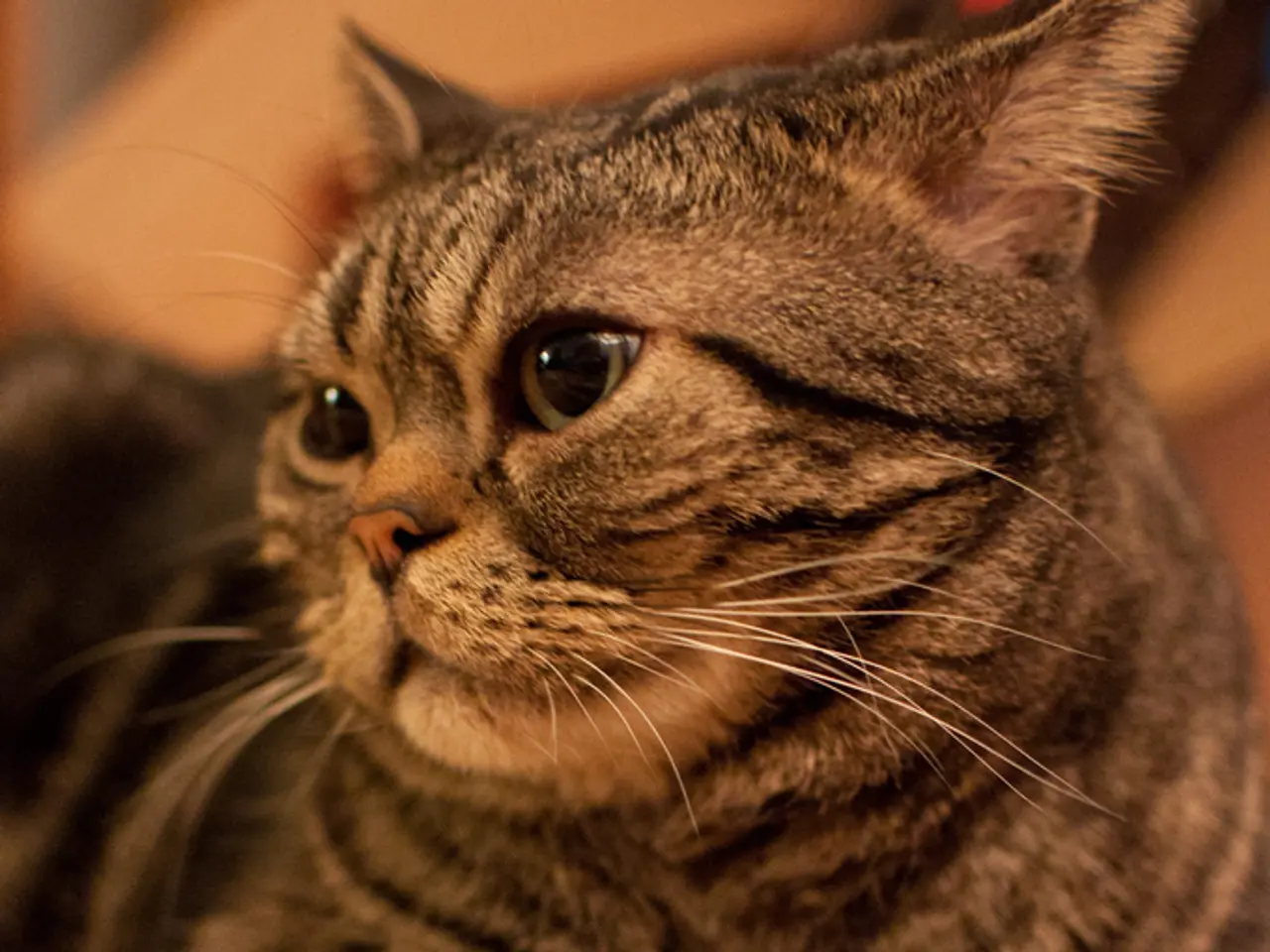helpfuladvice on achieving a healthy weight loss for feline friends, as provided by veterinarians
Promoting Healthy Weight Loss in Obese Cats
Obesity in cats can lead to a range of health problems, including diabetes mellitus, osteoarthritis, FLUTD, cancer, cardiovascular issues, and poor grooming. To help an obese cat lose weight in a healthy way, a two-pronged approach is required: decrease caloric intake and increase activity level.
Diet Recommendations
To ensure a cat loses weight in a healthy way, it's important to evaluate and control portions. Avoid overfeeding by measuring food based on your cat's ideal target weight, not current weight. Using specialized weight management cat food can also help, as these diets are lower in calories but maintain essential nutrients. Prescription diets formulated for weight loss can be recommended by your vet.
Limit high-calorie treats to prevent unnecessary weight gain. Consider gradual changes to avoid rapid weight loss, which can be harmful. Aim for slow, steady weight loss (a few ounces per week) to allow safe fat reduction and prevent health risks like hepatic lipidosis. In some cases, home-cooked diets or veterinary-prescribed diets may be appropriate, always under vet guidance.
Exercise & Activity Tips
Increase activity gradually by encouraging play sessions several times a day using interactive toys that stimulate chasing, jumping, and pouncing. Provide mental stimulation by using toys that make your cat move and hunt, mimicking natural behavior and increasing calorie expenditure. Indoor cats, who tend to be less active, can benefit from encouragement to move more. Consistency is important, as regular, moderate exercise combined with diet control helps maintain healthy weight.
Additional Tips
Regular veterinary monitoring is crucial, as frequent weigh-ins and health assessments allow your vet to adjust the plan and catch any problems early. Address behavioral factors leading to overeating or inactivity to support weight loss. Research into gut bacterial changes in dieting cats suggests probiotics may play a future role in weight loss, but this is not yet a standard part of management.
Overall, a slow, steady reduction in calories paired with increased play and vet supervision is the safest and most effective approach to help obese cats achieve and maintain a healthy weight. It's recommended to consult a vet before starting a weight-loss program for a cat. The recommendations on the cat food label can serve as a good starting point for determining how much to feed a cat to lose weight.
- To maintain the health of your cat, proper diet and care are essential, especially when addressing obesity.
- The right portion control and avoiding overfeeding are vital to a cat's weight loss journey.
- Specialized weight management cat food, prescription diets, and sometimes home-cooked diets, all advised under a vet's guidance, can help with weight loss.
- High-calorie treats can hinder weight loss, so it's best to limit them.
- Interactive toys that mimic natural cat behavior can encourage increased activity, leading to calorie burning.
- Regular veterinary monitoring will help keep track of the cat's progress and adjust the weight loss plan if necessary.
- Behavioral factors causing overeating or inactivity need to be addressed to support weight loss in cats.
- Probiotics may play a role in weight loss for cats in the future, but their use is not yet standard in management.
- A consistent exercise routine, proper diet control, and regular vet oversight are key to achieving and maintaining a healthy weight for overweight cats.




